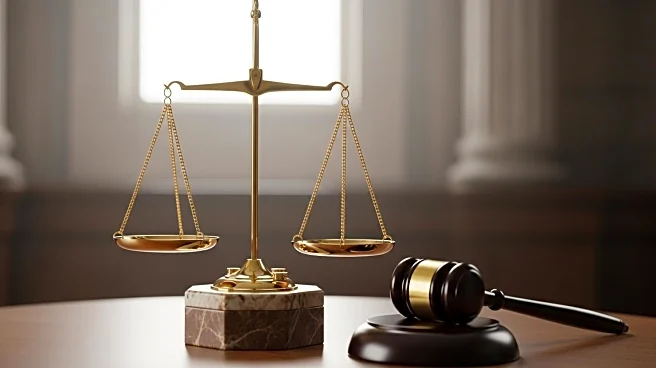What's Happening?
President Trump has initiated a significant increase in federal law enforcement presence in Washington, D.C., declaring a crime emergency. This move has led to over 1,000 arrests, with federal agencies and the National Guard given extensive authority to patrol the city. However, this surge is facing resistance in the federal courthouse, where judges and grand jurors have criticized the legality and ethics of the arrests. Notably, a federal grand jury refused to indict a woman accused of assaulting an FBI agent, and a magistrate judge condemned an arrest as the 'most illegal search' he had witnessed. These developments highlight tensions between local judicial processes and federal enforcement actions under Trump's administration.
Why It's Important?
The resistance from D.C. judges and grand jurors underscores significant concerns about civil liberties and the rule of law amidst heightened federal policing. The refusal to indict and judicial criticisms suggest potential overreach and violations of defendants' rights, raising questions about the balance between security measures and individual freedoms. This situation could impact public trust in law enforcement and judicial systems, particularly in politically charged environments. The actions taken by federal authorities may also influence future policy decisions and legal standards regarding federal intervention in local jurisdictions.
What's Next?
As the legal challenges continue, there may be further scrutiny and potential adjustments to the policing strategies implemented by President Trump. The judicial pushback could lead to revisions in how federal law enforcement operates in D.C., possibly affecting similar initiatives in other cities. Stakeholders, including civil rights groups and political leaders, are likely to engage in discussions about the implications of these enforcement actions, advocating for transparency and accountability. The outcomes of ongoing court cases will be pivotal in shaping the narrative and future of federal-local law enforcement collaboration.









